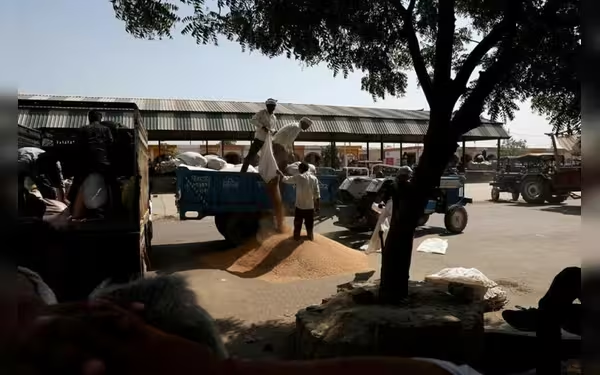Thursday, July 4, 2024 06:13 PM
Modi's Vision: Boosting Rural Incomes by 2030
- Modi aims to increase rural incomes by 50% by 2030
- Enhanced corporate investments in agriculture and small-scale industries crucial for growth
- Concerns over feasibility and impact of increased corporate involvement in agriculture
 Image Credits: brecorder
Image Credits: brecorderIndian Prime Minister Narendra Modi unveils plans to boost rural incomes by 50% by 2030 through increased corporate investments in agriculture. Challenges and skepticism persist over the feasibility and impact of this ambitious initiative.
Indian Prime Minister Narendra Modi has unveiled ambitious plans to boost rural incomes by setting a target of a 50% increase by 2030. This initiative aims to achieve the goal through enhanced corporate investments in agriculture and small-scale industries. Despite previous shortcomings in doubling farmer incomes, Modi's vision emphasizes the transformation of the agricultural sector to drive India's economic growth and bridge the urban-rural income gap.
Farmers have expressed apprehensions regarding declining incomes, escalating costs, and stagnant wages. Economists stress the importance of improved agricultural information and stable policies to address these challenges effectively. Both Modi's BJP and the opposition Congress party have committed to enhancing farmer incomes in their election agendas.
Modi's strategy to elevate rural per-capita income by half by 2030 involves increasing corporate investments in agriculture to 25% and bolstering small-scale industries. The reform of the agricultural sector is deemed critical for sustaining India's economic progress and narrowing the disparity between urban and rural regions. However, skepticism looms over the feasibility of these new targets following the unmet goal of doubling farmer incomes by 2022.
As India aims to evolve into a developed nation by 2047, Modi envisions a significant overhaul of the agricultural sector through heightened corporate engagement. Farmers' concerns about potential loss of control over their land and crops due to increased corporate involvement underscore the complexities of this transformation. Economists caution that solely raising corporate investments may not resolve the profitability issues in agriculture, advocating for comprehensive agricultural information and policy stability.
Amidst calls for legal assurances on minimum support prices for crops, farmers have protested against the relatively lower MSP increases during Modi's tenure compared to the previous decade. The pledges made by both Modi's BJP and the Congress party to enhance farmer incomes in their election manifestos reflect the pressing need to address the challenges faced by the agricultural community.













